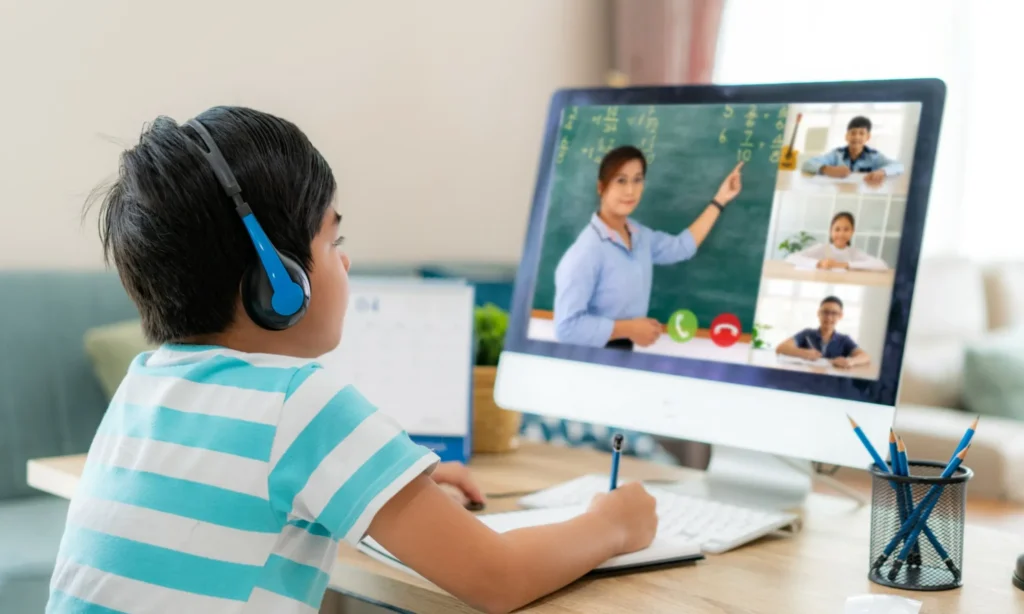Time management for kids: 10 things you can implement today in your child’s routine
- Time management definition for kids
- How to teach time management skills?
- Top 10 daily time management ideas for kids
Nowadays, school-aged children are as busy as their parents. However, unlike adults, they are still often unable to organize their time on their own. For younger children, it’s especially difficult to fully understand the concept of time and distinguish between duties and play time.
Planning your kid’s day and week is no easy task. However, smart time management for kids is something you can benefit from. Find out more about time management tools and time management games for kids.
Understand how to teach children to organize their time and cope with everyday duties. Learn practical tips on time management for kids, which will help your family plan and do important things easier!
Time management definition for kids
If you wonder how to describe what time management is to your kid, here’s a little help.
Time management for kids is the thinking skill that helps them to: estimate how long it will take to do something, complete tasks on time, and not waste time.
For example, your child can use time management skills when they get their homework done quickly, so thanks to that, they have a lot of time for pastimes.

How to teach time management skills?
According to specialists*, when we teach children strategies for time management from an early age, they internalize them, which sets them up for lifelong success.
Learning time management helps children and teenagers feel self-reliant and independent. It’s a great way to build children’s confidence and responsibility. If children feel they have plenty of time to do their chores, it will be less stressful for them.
Children who learn to manage their time can better separate study time from play and rest time. This helps them concentrate better when they need to study, and then enjoy their relaxing moments more. To succeed with teaching time management for pre-school kids and elementary students, make it fun and achievable.
Always reward your kid’s successes. This will motivate them to continue working on self-organization. Even just noting the fact out loud is enough. Try something like this: “Wow! You did your homework before time today. You can use the saved time, and play longer today!”
Also, lower your expectations and keep them realistic. Learning time management for kids is a long and complicated process. Support and help your child by encouraging them to test more ways to manage their time. Keep suggesting books, games, apps, and activities related to the topic of time management.
For more tips on how to achieve school life balance for pre-schoolers and elementary students, check out the video from Novakid’s expert, who shares her thoughts on the topic.
Top 10 daily time management ideas for kids
Are you ready to teach your kid time management? Let’s get started with some practical recommendations! Check out these ten daily time management ideas for kids. Find out how other parents helped their children with managing their time, using these tips.
1. Establish a daily routine
Establishing a daily routine helps children gain a sense of time. Set regular times for meals, school responsibilities and bedtime. Define consistent amounts of time for homework, relaxation, and fun. Don’t forget to stay flexible and be ready to adapt your routine to unusual events.
To visualize your daily routine, create colorful schedules with names and pictures of essential activities. Graphics are really helpful when it comes to implementing daily routines and time management strategies to pre-schoolers.
2. Teach your kid to keep order
Keeping your child’s desk and room tidy are important time management factors. Even a well-prepared schedule, in which the time for doing homework is strictly defined, can be ruined by wasting an extra quarter of an hour looking for a lost pencil or notebook. Colorful desk organizers will help keep your child’s school supplies in place and be ready to use all the time.
3. Prepare a To-Do List
With elementary school students, you can try more advanced time management activities. Try putting together a colorful To-Do List with daily, weekly or monthly duties. If your child is more of a computer enthusiast rather than an artsy soul, try one of many applications designed to help kids visualize task lists.
4. Set priorities when planning
Once you have your To-Do list ready, it’s time to prioritize. Follow the rule of putting the most important things first and the less important thing last. You can also group the tasks in the list in importance categories. For example: school duties and homework first, then everything else.
5. Teach telling the time
How long does it take to clean the room? What about doing math homework? In order to plan things well, it’s good to know how much time it takes. Teaching your kid telling the time might help.
Interesting fact: children do not develop a sense of time until around the age of 6. Even simple concepts like “before” and “after” are not easy for younger children to understand. However, you can systematically support learning how to estimate time for classes by using an hourglass, stopwatch or clockwise movements.
6. Break longer activities into smaller stages
One hour is a very long time for a child. If an activity takes a long time (more than one hour), it is better to divide it into smaller stages, so that the child does not lose concentration and motivation.
It’s worth noticing that the maximum attention span of a child is approximately 2-3 minutes multiplied by the child’s current age. For example, the maximum concentration time for a five-year-old is about 15 minutes. This is why, Novakid online English classes for kids are engaging, fast-paced, and last just 25 minutes. This makes it easier for children to focus and retain the material.
7. Make the most of screen time with Novakid
Learning English online with Novakid, on their dedicated, interactive platform, can be one of such time management activities for kids. With online education, you can save plenty of time on every day commuting. Your kid can learn English efficiently with a native speaker in their own room. All they need is a computer with Internet access.
Furthermore, online education helps children manage their screen time better. Lessons with Novakid are based on engaging video content, songs and real interactions with teachers in English. Learning English with Novakid is fun and stress-free.
8. Play time management games
Teaching time management to kids can be supported with interesting games and activities. Games based on memorizing and processing information will be most helpful. You can use matching games, strategy games such as Airport Rush or The Hospital or even simulation games like The Sims. Logical games, such as classic chess or 5 seconds, will also do.
9. Support time management for kids with books
You can find some time management strategies for kids in books related to the topic. These books are usually extra visual and help children understand the concept of time, and support managing their daily chores. Try: “Planning Isn’t My Priority” and “Growth Mindset Activities for Kids”.
10. Plan, but don’t over plan
It is good to leave free spaces in the daily schedule for unplanned events. Over-planning and always sticking to the schedule can frustrate and stress your child. Nobody likes living under too much pressure, right? Furthermore, excessive planning can lead to helplessness of the child in crisis situations for which there is typically no plan, and that requires spontaneous action.
Do you have any thoughts on teaching time management to kids? What tools do you use in the process of preparing your kid to manage their time well? Share your thoughts in the comments section below. Use the practical daily time management ideas for kids we listed in this article.
Did you like the article?
* Lynn Meltzer, Ph.D., president of the Research Institute for Learning and Development, a nonprofit research and educational organization









































